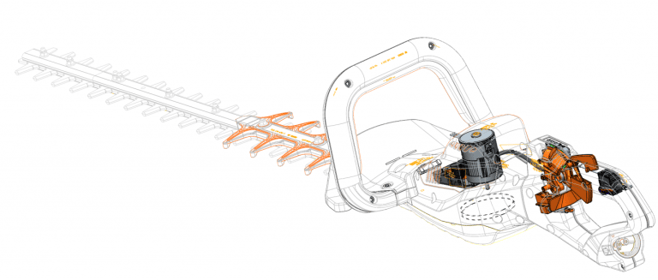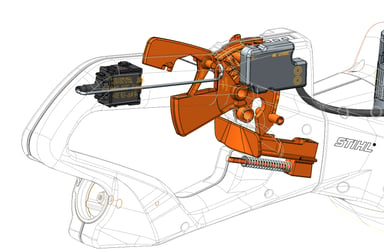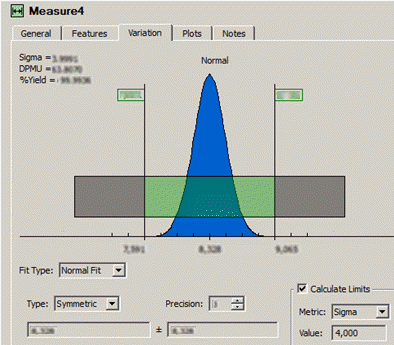CETOL 6σ Tolerance Analysis aids in high quality of STIHL products
The Customer
Our products: STIHL is a globally leading manufacturer of chain saws and other power tools for professional forestry and agriculture as well as for garden and landscape maintenance, the construction sector and the demanding private user.
Our vision: “Making it easier to work with nature and in natural surroundings.”
Andreas Stihl founded his engineering company in Stuttgart in 1926. He developed the world’s first one-man chain saw.
Company portrait: The company was founded in 1926 and is based in Waiblingen near Stuttgart. STIHL has manufacturing plants in seven countries: Germany, USA, Brazil, Switzerland, Austria, China and the Philippines. In 2016, STIHL achieved a worldwide sales volume of 3.46 billion euros with a workforce of 14,920 men and women. STIHL has been the world’s topselling chainsaw brand since 1971.
The Challenge
As this is a rechargeable battery product, the throttle trigger does not operate a carburetor like in combustion engines, but a sensitive potentiometer that controls the resulting engine speed.

To make sure, that speed of the engine can be controlled reliable, dimensions and tolerances of all components of the actuator have to be designed in suitable way.
The components have to meet the following requirements:
- Locking function in case of incorrect grip of the handle or inadvertent operation of the lever.
- When shift lever is locked, the motor shaft must not start to run
- Operation of the potentiometer in its complete operating range
- Manufacturability and capable for assembling process

The Solution
The aim of the analysis with CETOL 6σ was to analyse the clearance and the degree of activation of the potentiometer. In order to fulfill all requirements, it was necessary to identify the dimensions with the highest statistical effect on the result and to adjust the tolerance ranges accordingly. Manufacturing aspects have to be taken into account.
The evaluation of the effects of individual dimensions and range of their tolerance fields was carried out automatically with CETOL 6σ .


The Result
The tolerance analysis with CETOL 6σ helped us to verify the concept and, by evaluating statistical influences, quickly determine where small changes cause a significant improvement in the resulting values towards the required limits. Later adjustments to the geometry, due to different reasons, could be avoided.

